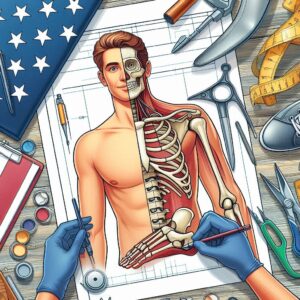Coursera: Revolutionizing Online Education and Professional Development
Introduction
In today’s fast-paced world, the demand for flexible, accessible, and high-quality education is more significant than ever. Coursera, a leading online learning platform, has emerged as a game-changer in the education landscape, providing millions of learners worldwide with access to courses, certifications, and degree programs from top universities and institutions. This article delves into Coursera’s mission, its vast offerings, the impact it has had on education and professional development, and its future trajectory.
The Mission and Vision of Coursera
Founded in 2012 by Stanford University professors Andrew Ng and Daphne Koller, Coursera was born out of a vision to make world-class education accessible to anyone, anywhere. The platform’s mission is to provide “universal access to the world’s best education.” By leveraging technology and partnerships with leading institutions, Coursera aims to break down traditional barriers to education, such as geography, cost, and scheduling, thereby democratizing learning opportunities for all.
Vast Course Offerings
- Courses and Specializations
- Coursera offers a broad array of courses across various disciplines, including business, technology, health, arts, and humanities. These courses are designed and taught by instructors from renowned universities like Stanford, Yale, and the University of Michigan, as well as industry leaders like Google and IBM.
- For learners seeking to dive deeper into a specific field, Coursera provides specializations—series of related courses that culminate in a capstone project. These specializations are particularly valuable for gaining in-depth knowledge and skills in areas such as data science, digital marketing, and project management.
- Professional Certificates
- Professional certificates on Coursera are designed to equip learners with job-ready skills that are highly valued by employers. These programs, often developed in collaboration with industry leaders, cover topics like IT support, data analytics, and cloud computing.
- Google, IBM, and Meta are among the companies that offer professional certificates on Coursera, providing learners with credentials that can significantly enhance their career prospects.
- Degree Programs
- Coursera has expanded its offerings to include fully online degree programs at the bachelor’s and master’s levels. These programs are offered in partnership with top universities and cover fields such as business administration, computer science, and public health.
- Coursera’s degree programs are designed to be flexible, allowing students to balance their studies with work and other commitments. Additionally, these programs are often more affordable than traditional on-campus degrees, making higher education more accessible.
Impact on Education and Professional Development
- Democratizing Education
- Coursera has played a crucial role in democratizing education by providing access to high-quality courses and degree programs that were previously available only to a select few. With a global reach, the platform has enabled millions of learners from diverse backgrounds to enhance their knowledge and skills, regardless of their location or financial situation.
- The platform’s ability to offer courses in multiple languages and provide financial aid to those in need has further extended its impact, making education truly global and inclusive.
- Bridging the Skills Gap
- In a rapidly changing job market, the demand for new skills is ever-growing. Coursera has positioned itself as a key player in bridging the skills gap by offering courses and certifications that align with current industry needs.
- Companies and governments worldwide are partnering with Coursera to upskill their workforces. For instance, Coursera for Business provides organizations with tailored learning programs that help employees acquire critical skills, leading to enhanced productivity and innovation.
- Supporting Lifelong Learning
- Coursera promotes the concept of lifelong learning, encouraging individuals to continually update their skills and knowledge throughout their careers. The platform’s flexibility, with self-paced courses and mobile access, allows learners to integrate education into their daily lives, making it easier to pursue personal and professional growth.
- Whether it’s learning a new programming language, understanding the fundamentals of business strategy, or exploring the latest advancements in healthcare, Coursera provides opportunities for continuous learning and development.
The Future of Coursera
- Innovations in Online Learning
- Coursera is continuously innovating to enhance the learning experience. The platform is integrating advanced technologies such as artificial intelligence and machine learning to provide personalized course recommendations, adaptive learning paths, and interactive assessments.
- The use of virtual reality (VR) and augmented reality (AR) in some courses is also being explored, providing learners with immersive experiences that simulate real-world scenarios and hands-on training.
- Expanding Global Reach
- As Coursera continues to grow, it is expanding its reach into new markets, particularly in emerging economies where access to quality education is limited. By partnering with local institutions and organizations, Coursera aims to tailor its offerings to meet the specific needs of learners in different regions.
- The platform is also focusing on increasing the availability of courses in various languages, making it easier for non-English speakers to access high-quality education.
- Strengthening Industry Partnerships
- Coursera’s partnerships with industry leaders will likely continue to expand, offering learners more opportunities to gain credentials that are directly relevant to the job market. These collaborations will help ensure that the platform’s offerings remain aligned with the evolving needs of employers and industries.
- Additionally, Coursera for Government and Coursera for Campus are growing areas of focus, helping governments and educational institutions provide high-quality, scalable learning solutions to their constituents.
Conclusion
Coursera has transformed the landscape of online education by providing accessible, flexible, and high-quality learning opportunities to millions of people around the world. Its commitment to democratizing education, bridging the skills gap, and supporting lifelong learning has made it a valuable resource for learners, educators, and employers alike. As the platform continues to innovate and expand, it is poised to play an even more significant role in shaping the future of education and professional development.




